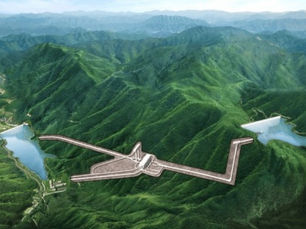Kuwait prequalifies six for 1.1GW solar IPP
- Energy Box

- Aug 23, 2024
- 2 min read

International and local utility developers can bid for the Al-Dibdibah and Shagaya renewable energy phase three, zone one package
Kuwait’s Ministry of Electricity, Water & Renewable Energy (MEWRE), through the Kuwait Authority for Partnership Projects (Kapp), has prequalified six consortiums and companies that can bid for a contract to develop and operate a major solar power plant project in the country.
The Al-Dibdibah power and Al-Shagaya renewable energy phase three, zone one project is understood to have a capacity of 1,100MW.
The consortiums and companies that have been prequalified to bid for the contract are:
Acwa Power (Saudi Arabia) / Alternative Energy Projects Company (local)
Trung Nam Construction (Vietnam)
EDF Renewables (France) / Abdullah Al-Hamad Al-Sagar and Brothers Company (local) / Korean Western Power Company (Kowepo, South Korea)
Jinko Power (Hong Kong) / Jera (Japan)
Abu Dhabi Future Energy Company (Masdar, UAE) / Fouad Alghanim & Sons General Trading Contracting Company (local)
TotalEnergies Renewables (France)
The 1,100MW solar photovoltaic (PV) independent power producer (IPP) project is located in the Jahra governorate, about 100 kilometres from the capital, Kuwait City.
Kapp issued the request for qualifications for the contract in January this year.
MEED reported in April that the authorities were still reviewing the prequalification documents submitted by interested bidders.
The package to be tendered comprises the Al-Dibdibah and Shagaya renewable energy phase three, zone one project, Kapp said when it issued the request for qualifications to interested bidders in January.
London-headquartered DLA Piper is the legal adviser, while Norwegian engineering services firm DNV is the client’s technical and environmental adviser.
2030-50 strategy
Kuwait aims to have a renewable energy installed capacity of 22,100MW by 2030 as part of the 20-year strategy that was announced in March, which ends in 2050.
Minister of Electricity, Water & Renewable Energy, Salem Falah Al-Hajraf, confirmed that the strategy also involves installing distributed or rooftop solar farms, with the state procuring the energy output from solar PV farms.
Kuwait aims to reach net-zero carbon emissions by 2060.














Comments